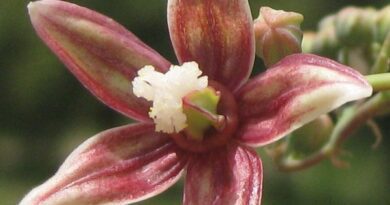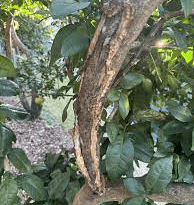The Anise Fruits: Economic Importance, Uses, and By-Products
Anise fruits, scientifically known as Pimpinella anisum, are small, oval-shaped seeds harvested from the anise plant. Belonging to the Apiaceae family, these seeds are native to the eastern Mediterranean region and Southwest Asia. The anise plant, also called aniseed, grows up to about 3 feet in height and produces delicate white flowers that give way to the seeds. These seeds are renowned for their distinct licorice-like flavor and aromatic properties, which make them a popular ingredient in various culinary and medicinal applications.
In culinary contexts, anise fruits are prized for their unique flavor profile, which combines sweet, spicy, and slightly bitter notes. They are commonly used as a flavoring agent in both sweet and savory dishes, adding depth and complexity to recipes. Anise seeds are frequently found in baked goods such as bread, cookies, and cakes, as well as in beverages like herbal teas and liqueurs. Additionally, they are a key component in many traditional spice blends, such as Indian garam masala and Middle Eastern za’atar.
Beyond their culinary uses, anise fruits have a long history of medicinal use dating back to ancient times. They are rich in essential oils, including anethole, which is believed to have various health benefits. Anise seeds are often used to aid digestion, relieve gastrointestinal discomfort, and alleviate symptoms of coughs and colds. They are also valued for their carminative properties, which help to reduce gas and bloating. In some cultures, anise seeds are chewed after meals to freshen the breath and promote oral hygiene.
Anise fruits are not only prized for their flavor and medicinal properties but also for their cultural significance. They have been used in religious ceremonies, cultural rituals, and traditional folk remedies for centuries. In ancient Egypt, anise seeds were placed in the tombs of pharaohs as offerings for the afterlife. Similarly, in ancient Greece and Rome, anise was associated with rituals of purification and protection. Today, anise continues to hold cultural significance in many parts of the world, with its seeds being used in various cultural and culinary traditions.
Anise fruits, or anise seeds, are small seeds harvested from the anise plant, scientifically known as Pimpinella anisum. These seeds are prized for their distinctive licorice-like flavor and aromatic properties, making them a popular ingredient in both culinary and medicinal applications. Rich in essential oils, anise seeds have been used for centuries to flavor dishes, aid digestion, and alleviate various ailments. Additionally, they hold cultural significance in many societies, where they are used in religious ceremonies, cultural rituals, and traditional remedies.
The Economic Importance and Uses of Anise Fruits

1. Culinary Ingredient: Anise fruits are widely used as a culinary ingredient in various cuisines around the world. They impart a distinct licorice-like flavor to dishes and are commonly used in both sweet and savory recipes.
2. Herbal Teas: Anise fruits are often used to flavor herbal teas due to their aromatic and slightly sweet taste. Anise tea is known for its digestive properties and is enjoyed for its soothing effects on the stomach.
3. Medicinal Purposes: Anise fruits have been used for centuries in traditional medicine for their potential health benefits. They are believed to aid in digestion, alleviate symptoms of coughs and colds, and promote relaxation.
4. Aromatherapy: The essential oil extracted from anise fruits is utilized in aromatherapy for its calming and soothing properties. It is often used in diffusers or massage oils to promote relaxation and reduce stress.
5. Confectionery: Anise fruits are a popular ingredient in confectionery products such as candies and sweets. Their sweet and aromatic flavor adds a unique twist to various sweet treats.
6. Liqueurs and Spirits: Anise fruits are a key ingredient in the production of several alcoholic beverages, including absinthe, ouzo, and pastis. These spirits are known for their distinct anise flavor and are enjoyed around the world.
7. Cooking Oils: Anise fruits can be used to infuse cooking oils with their aromatic flavor. Anise-infused oils are often used in Mediterranean cuisine to add depth and complexity to dishes such as salads and marinades.
8. Herbal Remedies: Anise fruits are often used in herbal remedies to treat a variety of ailments, including indigestion, bloating, and insomnia. They are believed to have carminative and sedative properties that can help alleviate these symptoms.
9. Potpourri: Dried anise fruits are commonly used in potpourri mixtures for their pleasant aroma. They add a sweet and spicy scent to the mix, making them a popular choice for homemade air fresheners.
10. Natural Insect Repellent: Anise fruits contain compounds that are believed to repel certain insects, making them a natural alternative to chemical insect repellents. They can be placed in sachets or scattered around the home to deter pests.
11. Cosmetic Products: Anise fruits are sometimes used in cosmetic products for their aromatic properties. They can be found in perfumes, soaps, and lotions, adding a subtle fragrance to these products.
12. Culinary Garnish: Fresh anise fruits can be used as a decorative garnish for various dishes, adding visual appeal and a hint of flavor. They are often used to garnish salads, seafood dishes, and cocktails.
13. Herbal Smoking Blends: Anise fruits are occasionally used in herbal smoking blends for their flavor and aroma. They can add a unique twist to tobacco-free smoking mixtures, providing a pleasant alternative to traditional tobacco.
14. Traditional Medicine: Anise fruits have been used in various cultures around the world as a traditional remedy for respiratory ailments such as coughs and bronchitis. They are often brewed into teas or infused into syrups for their medicinal properties.
15. Culinary Seasoning: Ground anise fruits are commonly used as a culinary seasoning in spice blends and rubs. Their warm and spicy flavor pairs well with a wide range of savory dishes, including meats, vegetables, and sauces.
16. Herbal Infusions: Anise fruits can be steeped in hot water to create a fragrant herbal infusion. This soothing beverage is often enjoyed for its calming properties and is believed to promote relaxation and alleviate stress.
17. Digestive Aid: Anise fruits are believed to have digestive properties that can help alleviate symptoms of indigestion and bloating. They are often consumed after meals as a natural remedy for digestive discomfort.
18. Respiratory Health: Anise fruits are sometimes used to alleviate symptoms of respiratory conditions such as coughs and congestion. They are believed to have expectorant properties that can help loosen mucus and ease breathing.
19. Culinary Preservative: Anise fruits contain antimicrobial compounds that may help preserve food and prevent spoilage. They are sometimes used in pickling recipes or added to foods as a natural preservative.
20. Traditional Rituals: In some cultures, anise fruits are used in traditional rituals and ceremonies for their symbolic significance. They may be burned as incense or added to ritual baths to promote spiritual purification and protection.
Read Also: 10 Medicinal Health Benefits Of Rosa × centifolia (Cabbage Rose)
The Products and By-products That Can Be Derived From Anise Fruits

1. Anise Oil: The essential oil extracted from anise fruits is a valuable by-product used in various industries, including food, cosmetics, and pharmaceuticals. It is prized for its distinct flavor and aroma, making it a popular ingredient in a wide range of products.
2. Anise Extract: Anise extract is derived from anise fruits and is commonly used as a flavoring agent in food and beverages. It is often added to baked goods, candies, and liqueurs to impart a sweet and aromatic flavor.
3. Anise Tea: Dried anise fruits can be steeped in hot water to create a fragrant herbal tea. Anise tea is enjoyed for its soothing properties and is often consumed to aid digestion and promote relaxation.
4. Anise Seeds: Anise fruits produce small seeds that are used as a spice in cooking and baking. Anise seeds have a sweet and aromatic flavor and are commonly used to flavor breads, cookies, and pastries.
5. Anise Powder: Ground anise fruits can be used as a spice in various culinary dishes. Anise powder is often added to spice blends, marinades, and rubs to impart a warm and spicy flavor to foods.
6. Anise Infusion: Anise fruits can be steeped in hot water to create a fragrant herbal infusion. Anise infusion is often consumed for its digestive properties and is believed to aid in digestion and alleviate symptoms of indigestion.
7. Anise Soap: Anise oil is sometimes used in the production of soap for its aromatic properties. Anise soap has a sweet and spicy scent that lingers on the skin, making it a popular choice for bath and body products.
8. Anise Liqueur: Anise fruits are a key ingredient in the production of several alcoholic beverages, including absinthe and ouzo. These spirits have a distinct anise flavor and are enjoyed around the world.
9. Anise Perfume: Anise oil is occasionally used in the production of perfume for its aromatic properties. Anise perfume has a sweet and spicy scent that is often used in fragrances for both men and women.
10. Anise Candles: Anise oil can be used to scent candles for its pleasant aroma. Anise candles create a warm and inviting atmosphere and are often used for aromatherapy and relaxation.
11. Anise Incense: Anise fruits can be burned as incense for their aromatic properties. Anise incense creates a sweet and spicy scent that is believed to promote relaxation and spiritual purification.
12. Anise Flavored Syrup: Anise extract can be used to flavor syrups for use in beverages and desserts. Anise flavored syrup is often added to cocktails, coffees, and ice creams for a hint of sweetness and aroma.
13. Anise Scented Sachets: Dried anise fruits can be placed in sachets to create natural air fresheners. Anise scented sachets are often placed in drawers, closets, and cars to impart a sweet and spicy scent to the surroundings.
Read Also: 16 Medicinal Health Benefits Of Rubia (Madder)
Frequently Asked Questions (FAQ’s) About Anise Fruits

1. What are anise fruits?
Anise fruits are the dried fruits of the anise plant, Pimpinella anisum. They are commonly used as a flavoring agent in cooking, herbal teas, and traditional medicine.
2. How are anise fruits used in cooking?
Anise fruits can be used whole or ground to add flavor to a variety of dishes, including soups, stews, and sauces. They are also commonly used to flavor herbal teas and alcoholic beverages.
3. What are the health benefits of anise fruits?
Anise fruits are believed to have several health benefits, including aiding in digestion, alleviating symptoms of coughs and colds, and promoting relaxation. They are also rich in antioxidants and may have antimicrobial properties.
4. Can anise fruits be used as a natural remedy for digestive issues?
Yes, anise fruits are often consumed after meals to aid in digestion and alleviate symptoms of indigestion and bloating. They are believed to have carminative properties that can help reduce gas and bloating.
5. Are there any precautions to consider when using anise fruits?
Some people may be allergic to anise fruits and should avoid using them. Additionally, excessive consumption of anise fruits may have adverse effects, such as nausea, vomiting, and allergic reactions. It is best to use them in moderation and consult a healthcare professional if you have any concerns.
Read Also: Practical Steps to Convert Asphalt Wastes into Road Base









